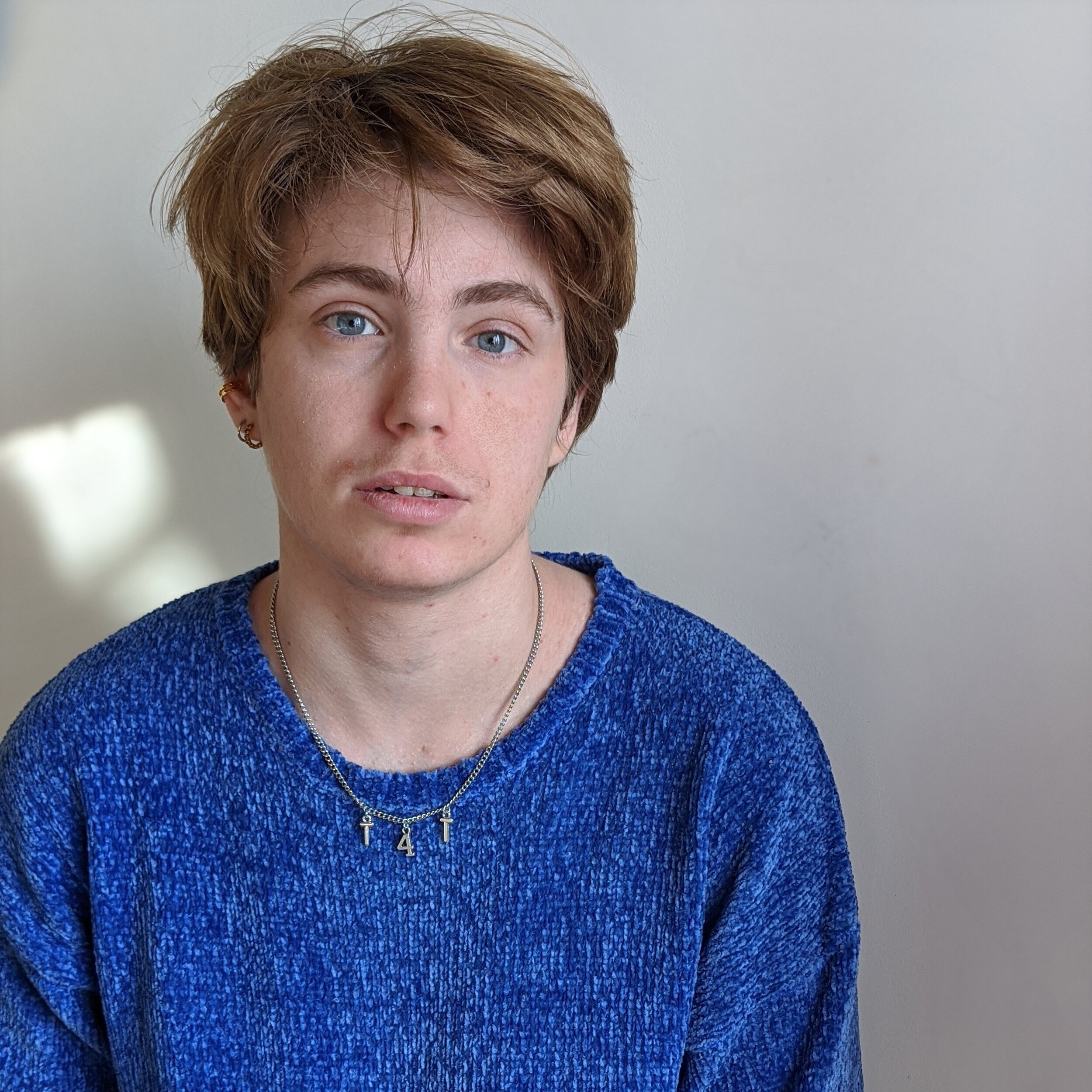Yes, All Men - from the POV of a Trans Man
I engage in “not all men” discourse at least once a week. My routine is incredibly precise: I drink two mugs of hot chocolate every 0.111111111114444444 days, apply my Testogel once (in the morning), charge my phone twice (overnight and during my afternoon nap) and yell at men for the rest of the week. Part of it is organic: I spend hours doom scrolling and it’s really easy to find similar conversations. Groups about internet drama, memes, fandoms. Under pictures of frogs.
Sometimes I’m “hired” to deal with it: I get a message from one of my partners or friends asking me to “please deal with it before I kill someone”. So I crack my fingers, double the dose of hot chocolate and start writing. As a trans man, one of the most common questions is “are trans men trash as well?” The short answer is yes. We are men, we uphold the patriarchy, we benefit from male privilege. The long answer is why I’m writing this article instead of cooking dinner.
One of the most difficult things for me, once I realised I am transgender, was coming to terms with the fact I’m a man. And this wasn’t just because of my social transition and the difficulties associated with being transgender in a cisnormative society. Part of it was realising I was now in a position of privilege, I but no one warned me about it.
Once I started being seen and perceived as a man, I started being treated like one. Suddenly any time I would say something, people would listen. When I would buy video games, no one would ask if it was for my brother or my partner. When I would jump in conversations online, men who had been dragging out conversations with (mostly) women for hours, would understand the same point they were trying to make and immediately agree with me. Or, likely, they would start reading the conversation just because a man joined it.
And what I initially mistook for solidarity was a confusing trap. Suddenly I was an authority in every topic just because I was a man. I was valued, I was supported, I would get pat on the backs. But at the same time, that was the maximum extent of communication I could expect. No one asked me about my mental health anymore. My photos and selfies would get less likes and traction. Insults and assumptions about me would be more targeted on my queerness.
I soon came to realise that being part of that new network came with two big changes. No one challenged my authority, but no one cared about me. After years of fighting to take space, make my voice heard, challenge the patriarchy to prompt radical social changes… my voice became valuable but invisible. And that invisibility was just the first step.
Whatever privilege I got from my transition, it was conditional. And those conditions varied as well. Part of my privilege was already there, and I was used to them, but those wouldn’t change depending on circumstances. My bank account largely didn’t change with my social transition. And no one would ever see me as anything but white.
But being a man was different. It was a “privilege is in the eye of the beholder” scenario. First of all: passing. A concept I hate but proves useful in certain circumstances. As soon as people realise I’m transgender, or think I’m a woman, that privilege disappears. If anything, it gets worse, as I still wouldn’t be able to access women-only support spaces, and some people would see me as a “traitor” since I transitioned to become the “oppressor”. Also, that puts me in danger. It makes abuse and assault more likely, even ignoring trans panic defence and equivalents, because some people will just see me as a woman in men-only spaces. And those networks don’t encourage calling out harmful behaviour. And this leads to the other issue: even if we are men, that doesn’t erase the difficulties that being trans entails.
Trans men still face discrimination in employment, healthcare, housing. They are still at risk of sexual assault, violence, hate crimes. And it’s hard to be kicked out of support spaces, of being erased and excluded from conversations still relevant to us (for example periods, or abortion) simply because we’re men. It’s tempting to say “we’re man, but not like that”. And that boils down to how you internalise the label. It’s hard growing up thinking of men as the oppressors and then figuring out you’re one. It’s why lots of trans men struggle to use the label, why it sometimes feels like a reclamation rather than a self ID, or why some people end up distancing themselves from it.
While the goal is still finding our space in masculinity and reshaping it, that relationship is often conflicted, and the results vary a lot depending on support networks, upbringing, overlaps of gender and social roles. And in an attempt to distance ourselves, we occasionally feed into that narrative again. Not having the means to define our masculinity, to draw that line between connecting with cis men and separating us from them, the “not all men” tagline can feel appealing.
But the truth is, I have seen toxic behaviour equally from cis men and trans men. And I understand why some people might resort to that: after all, there is a lot of pressure on trans people to perform masculinity and femininity more, and trans people are held at different standards of gender conformity. However, that itself is feeding into toxic masculinity. At the end of the day, when it comes to systemic oppression, impact matters more than intent.
Regardless of trauma and how “recently” that privilege was acquired, transmasc people benefit - even just occasionally or conditionally - from male privilege. And with that privilege comes the need to take accountability and responsibility for the systemic oppression we contribute to. We don’t need to be feminists because we’re occasionally seen as women. We don’t need to be pro-choice because we have or had a uterus. We need to do it because people will listen because we’re men. And as men, we can use that privilege to protect minorities, to be on the front line, to shield them and boost those voices and demands.
People focus on how hard it is to lose privilege, but gaining it is confusing. It’s like being thrown in an office environment for the first time in your life, being told you’re the manager, and no one is working. You end up living in a culture you’re not familiar with, that you’re scared of, thinking about the risks you’ll face as soon as they realise you don’t “belong”. But the truth is, we do. Our masculinity is not up for discussion. We are men and masc people. And nitpicking the pros and cons that come with that, will not interrupt the toxicity, will not make our life easier. We’re not going to be treated differently if we’re less confident in our identity. We are taking that space even if we didn’t ask for it, but at the end of the day, we’re the ones choosing how to use it, and what to platform. And the way we shape that space will allow for other spaces to be moulded after ours.
Written by Ramses Olivia
Ramses (ramses.uk) is a transgender activist, writer, and educator whose focus is improving transgender visibility in all fields. He works with charities, brands, and companies to improve diversity and inclusion policies, and is currently working on resources for children and parents to start conversations about gender diversity.






